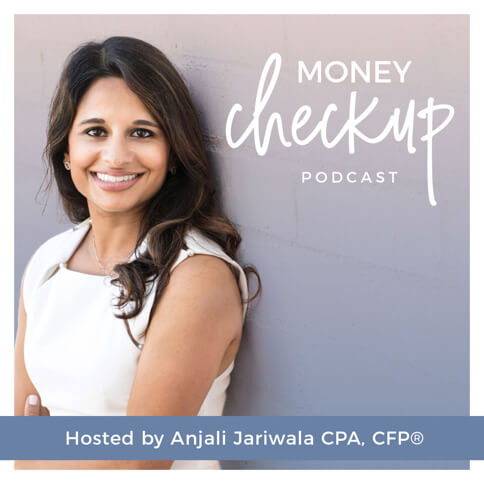Congratulations! You’re in the final months of residency or fellowship. At long last, you’re almost finished with your training and ready to start working as an attending.
That probably means your life is about to change in some big ways.
For the first time in years, you won’t have a job change or relocation on the horizon. A sudden spike in your salary will give you the freedom to save and spend. Now is a great time to look at your finances and plan for the future.
Lots of financial professionals warn physicians about “lifestyle creep” because it’s such a common experience — you suddenly have more money, so you spend more, and as expenses increase, you realize you need to work more to keep up. It is perfectly fine to spend money. But make sure you do it with a plan to address your student loans, insurance needs, and retirement savings first.
Get your credit in order
Many of my new physician clients hope to purchase a home within two years of settling into their new jobs. From a financial planning perspective, that’s not a lot of time.
Whatever your goals are, the end of residency or fellowship is a good time to review your credit to see where you are. You can pull your credit report from Annual Credit Report which will provide your report from all three credit reporting agencies — each has to give you one free copy every year — and review it. Credit monitoring sites and many credit cards now offer your credit score for free, so review that too.
If your credit is less than ideal, start working on it now. Make all your debt payments on time. If you have a bankruptcy or another blotch on your credit report, note the dates — they’ll disappear from your credit reports after a period of time. If you use tend to max out your credit cards on a monthly basis, consider increasing your credit limit to help with your credit utilization ratio.
As you build your credit, it doesn’t hurt to start looking at housing prices in your local market. Think about how much you want to spend on a home and begin saving for a down payment while you wait for your score to rise.
Get disability insurance
All physicians should carry disability insurance. It is usually cheaper to get a policy as a resident or fellow rather than an attending physician. Many carriers offer a new-in-practice policy, which allows you to obtain a policy during your last year training without needing proof of income. It is also a good idea to ask around to find out if your program has an insurance agent who can offer discounts.
Next, make sure you have the correct provisions. Focus on own-occupation policies, which will cover your work as a physician even if you become disabled and choose another career path. For the same reason, I encourage my clients to have a partial disability rider. If you become disabled but eventually return back to work but in a lower capacity, the partial disability rider kicks in to make you whole again.
Look for non-cancelable and guaranteed renewable policies, which means your insurance provider can’t cancel or reduce your benefits as long as you continue to pay. A COLA rider, which stands for cost-of-living adjustment, means your benefits will increase with inflation.
Finally, keep an eye out for increase options or future purchase options, which allow you to increase your coverage without requiring medical underwriting.
If a move to California is in your future, take note: California’s disability rates are, generally speaking, the most expensive and least liberal in the country. Most carriers have a 24-month limitation for claims related to mental and nervous disorders. Further, certain specialties may not be able to get an own-occupation definition with certain carriers. To avoid some of these constraints, get your disability insurance in place before you move to California.
Disability insurance tends to be more expensive for women, so consider a unisex rate policy. Unisex rates can save women as much as 50% on disability.
And if you have pre-existing medical conditions, see if a Guaranteed Standard Issue (“GSI”) policy is a better fit than a standard disability policy for you. GSI policies require very little or no medical underwriting, but this provision usually comes with a higher premium cost.
Plan for your student loans
Student loans can be complex, and decisions you make now can have a long-lasting impact. That is why the end of residency or fellowship is a great time to review your student loans. It is also a good time to set specific short term and long term goals.
Some questions to ask yourself: Are you a candidate for public service loan forgiveness? Do you want to aggressively pay down your debt, or are you more comfortable making smaller payments over many years to maximize cash flow?
Many of my clients use REPAYE, Revised Pay As You Earn, to pay back federal loans. REPAYE provides full or partial interest subsidies on federal loans, depending on loan types and how long you’ve been paying them back. And payments are based on your discretionary income, meaning that as you earn more, you pay more and vice versa. There are drawbacks to REPAYE, however. Payments are not capped, which means you may end up making payments that are higher than the standard 10-year repayment plan.
PAYE is another popular option that also has its pros and cons. If paying the debt off as quickly as possible is your goal, then private refinancing may make sense, but note you will lose some of the benefits that federal loans provide.
Consider talking to an expert about what strategy makes the most sense for your family and lifestyle. Every borrower is different. A financial planner can see if your repayment plan is a good fit for you and talk to you about whether you should consider refinancing.
Plan for old retirement accounts
If you worked at an academic hospital during residency or fellowship, there’s a good chance you contributed to a tax-deferred retirement plan. You can leave this money where it is. However, you may forget that you have this account, or you may be stuck paying fees that eat into its performance in the long run.
For that reason, I encourage my clients to roll old retirement accounts into new plans. This could take the form of an IRA rollover, or you could roll it into your new employer’s 401(k) or 403(b). Though it’s more work in the short term, keeping all your money in one place ensures that you won’t lose track of any of your savings.
Plan your cash flow to avoid lifestyle creep
After years of education and training, the first big paycheck is a pleasant surprise for most physicians. It’s tempting to splurge right away. That is why it is a good idea to make a plan long before that money reaches your account. This doesn’t mean you have to continue to live like a resident, but rather, being thoughtful about how you will spend your money going forward.
Instead of making a traditional budget, I encourage my clients to plan their cash flow. Start with your take-home pay. Then subtract your fixed expenses: Student loan payments, disability insurance, retirement savings, rent or a mortgage, education savings for children, et cetera.
Then, allocate a monthly amount of money for discretionary spending. This doesn’t need to be an overly conservative number. Think about how much you’d like to be able to spend on yourself and your family. Then, stick to that number. Creating healthy spending habits now will help you avoid lifestyle creep later.
Finally, take advantage of as many tax-deferred vehicles as you can. Use an HSA, maximize contributions to retirement accounts, including 401(k)s and 403(b)s. Talk to your HR department about deferred compensation options. Most attending physicians do not qualify for Roth IRAs, but you can convert savings by using Backdoor Roths.
Connect with a financial advisor
There’s a lot of planning to do as you prepare for life as an attending. This transition is a great time to start a relationship with an expert who can walk with you through some of these decisions.
A financial planner can help you create a cash flow plan, examine loan repayment options, create a retirement savings strategy and more. Learn more about how to find the right financial professional for your needs.




